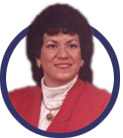Rumors Griping and Gossip
What’s the difference between “rumors,” “griping,” and “gossip” and how do you deal with it?
“Rumors” center on institutional or team issues, such as layoffs and reorganizations.
The best way to deal with rumors is to keep your team members informed about issues that affect them, go to the source and/or focus on the task at hand. If nothing is new, simply letting people know that is helpful.
“Griping” is a typically a response to some work-related issue that irritates an employee
The best way to deal with griping is to listen and help them to explore options to remove any real obstacles that are getting between the person and their goals.
“Gossip” deals with a topic that doesn’t directly affect the people who are gossiping. It’s either about what they heard somebody say to somebody else, or even worse it’s about the interpersonal affairs of other employees.
The single best way to deal with gossiping is to never pass on gossip, no matter where you are or who you are with. Become known as a nonparticipant and let people know that gossiping is usually hurtful and unproductive. If someone tells you something in confidence and you promise not to say anything, keep your promise! If you do, it is amazing how quickly you will be “in the know” and trusted.
Download link: www.hullonline.com/articles/rumors.doc
